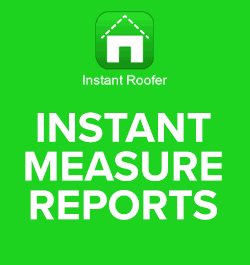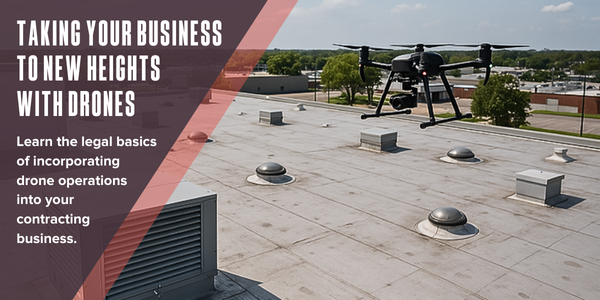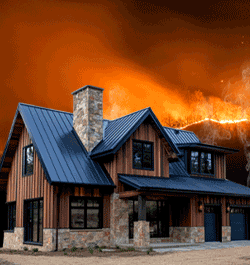UP TO THE MINUTE
Taking your business to new heights with drones
June 2, 2025 at 3:00 a.m.By John Kenney, Cotney Consulting Group.
Learn the legal basics of incorporating drone operations into your contracting business.
Innovation is the way of the world, and the roofing industry is no exception to that. From new shingle technology to software programs that take estimating and sales to the next level, there seems to always be something new that will help your company boost efficiency, safety and accuracy. Here at Cotney Consulting Group, we strongly believe in embracing these innovations, with the caveat of doing your research first.
Today, we’re going to dive into one the innovations that has quite literally taken flight recently — drones. Drones, which can also be referred to as Unmanned Aircraft Systems (UAS), are powerful inspection, estimating and marketing tools. But as with everything, great technology comes with great responsibility — and its fair share of regulations. Keep reading to learn how this game-changing tool can help your business when operated properly in compliance with your area’s drone laws.
Why drones are now a roofing essential
Roof inspections are inherently risky, especially in winter conditions. Drones reduce that risk by allowing contractors to inspect hard-to-reach roofs from the ground with stunning accuracy and minimal safety hazards.
Here's how drones benefit roofing companies:
- Faster, safer inspections: Launch and inspect with no ladders or fall risks before performing test cuts.
- More accurate estimates: Measure square footage, identify damage and detect weak points without stepping on the roof.
- Marketing power: Use drone imagery for before-and-after photos, showcasing your craftsmanship on social media and your website.
- Better documentation: Aerial images and video serve as powerful visual records for customers, adjusters and insurers.
Licensing requirements for drones in the U.S.
If you're flying a drone for your roofing business — even just for inspections — you must be licensed as a commercial drone operator.
License Requirements:
- Be at least 16 years old
- Pass the TSA security background check
- Take and pass the FAA Part 107 Aeronautical Knowledge Test
- Speak, write and read English fluently
Once certified, you'll hold a Remote Pilot Certificate, which the FAA requires for all commercial drone activity.
Other FAA Rules for Roofers Using Drones:
- Drone must weigh under 55 pounds
- Fly under 400 feet
- Keep line of sight
- Fly only during daylight hours
- Avoid flying over people or moving vehicles
- Stay out of controlled airspace unless granted a waiver
Important update (2024): 2024 the FAA introduced Remote ID requirements for drones weighing over 250 grams. This digital license plate broadcasts your drone's location and ID to ensure airspace transparency. Roofing contractors must provide a drone model that is Remote ID compliant or retrofit it with a broadcast module.
Canadian drone licensing requirements
Canadian roofers must hold a Pilot Certificate – Advanced Operations if performing commercial drone work.
Requirements:
- Pass an online exam and flight review
- Be at least 16 years old
- Register the drone with Transport Canada
- Always keep the drone within line of sight
- Fly below 122 meters
- Stay clear of airports (5.6 km) and helipads (1.9 km)
- Avoid flying over people or during emergencies
2024 Canadian update: Transport Canada requires drone logs to be maintained for all commercial operations. These must include pre-flight checks, flight details and any incidents or technical issues.
Protecting yourself legally: Get homeowner consent
You must secure written consent before flying over a homeowner's property — even if they're your client. Verbal approval is not enough in many jurisdictions.
Tips:
- Have a lawyer draft a simple consent form and waiver
- Avoid flying over neighboring properties without permission — privacy violations can result in fines
- Always document consent for each job
Common mistakes roofing contractors should avoid
- Flying without proper licensing or registration: This can result in fines of up to $27,500 (civil) or $250,000 (criminal) in the U.S.
- Crossing into controlled airspace: Always check your location on FAA or Nav Canada drone maps.
- Flying at night: This is illegal in both countries unless you've secured a waiver for night operations.
- Ignoring drone maintenance: Drones must be properly maintained, or you risk hardware failure mid-flight.
Best practices for roofing contractors using drones
- Pre-flight checklists: Use a checklist for every inspection — battery, weather, SD card and GPS signal.
- Use high-resolution cameras: Ensure crisp images that can be shared with clients and used in documentation.
- Train your staff: Don't hand off drone duties without proper training. Every pilot must understand the regulations.
- Integrate drone software: Combine drone imaging with estimating platforms for seamless documentation and quoting.
Where drone use in roofing is headed
As technology advances, drones will become more autonomous and integrated with AI. Upcoming innovations include:
- Thermal imaging to detect leaks or energy loss
- Automated flight paths for consistent inspections
- AI-driven damage detection for faster report generation
- 3D roof modeling from drone data for advanced planning
Roofers who embrace drone tech now — safely and legally — will position their companies as modern, efficient and professional operations that customers can trust.
Final thoughts
Drones are no longer a novelty in roofing — they're a necessity. Combining drone use with proper training, licensing and consent protocols will improve safety, efficiency and customer satisfaction.
Stay compliant. Stay ahead. And let drones elevate your roofing business.
Original article and photo source: Cotney Consulting Group
Learn more about Cotney Consulting Group in their Coffee Shop Directory or visit www.cotneyconsulting.com.





















Comments
Leave a Reply
Have an account? Login to leave a comment!
Sign In